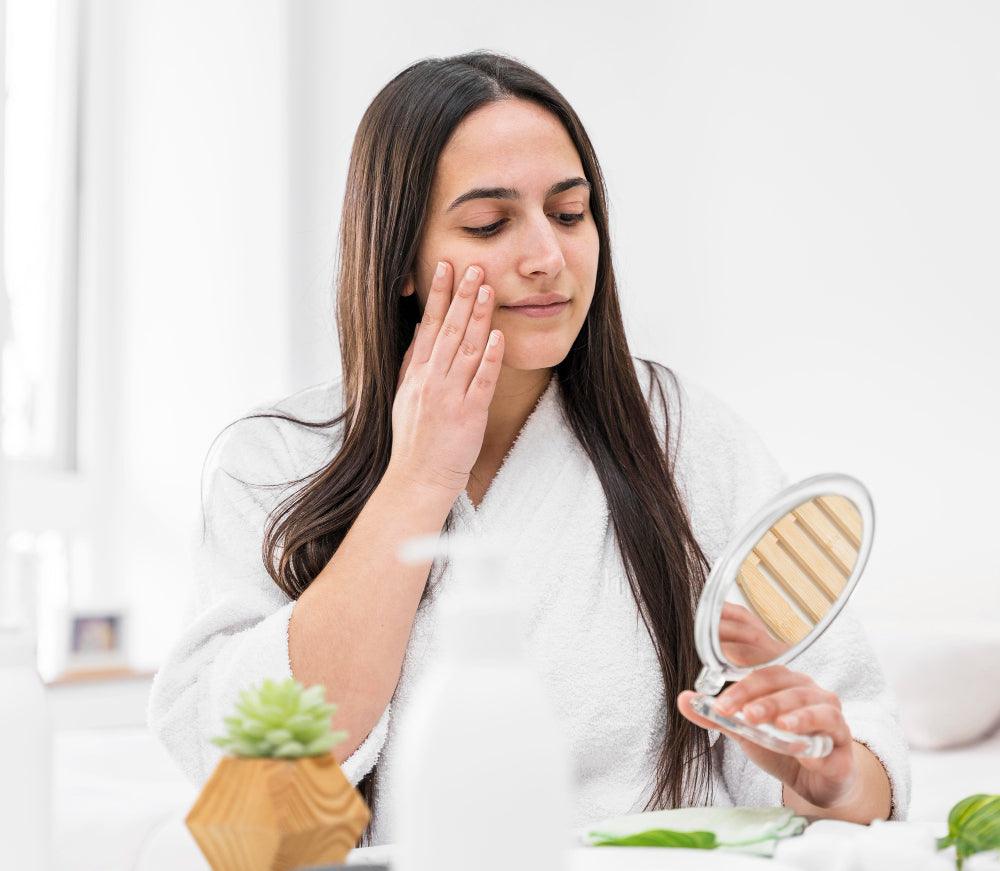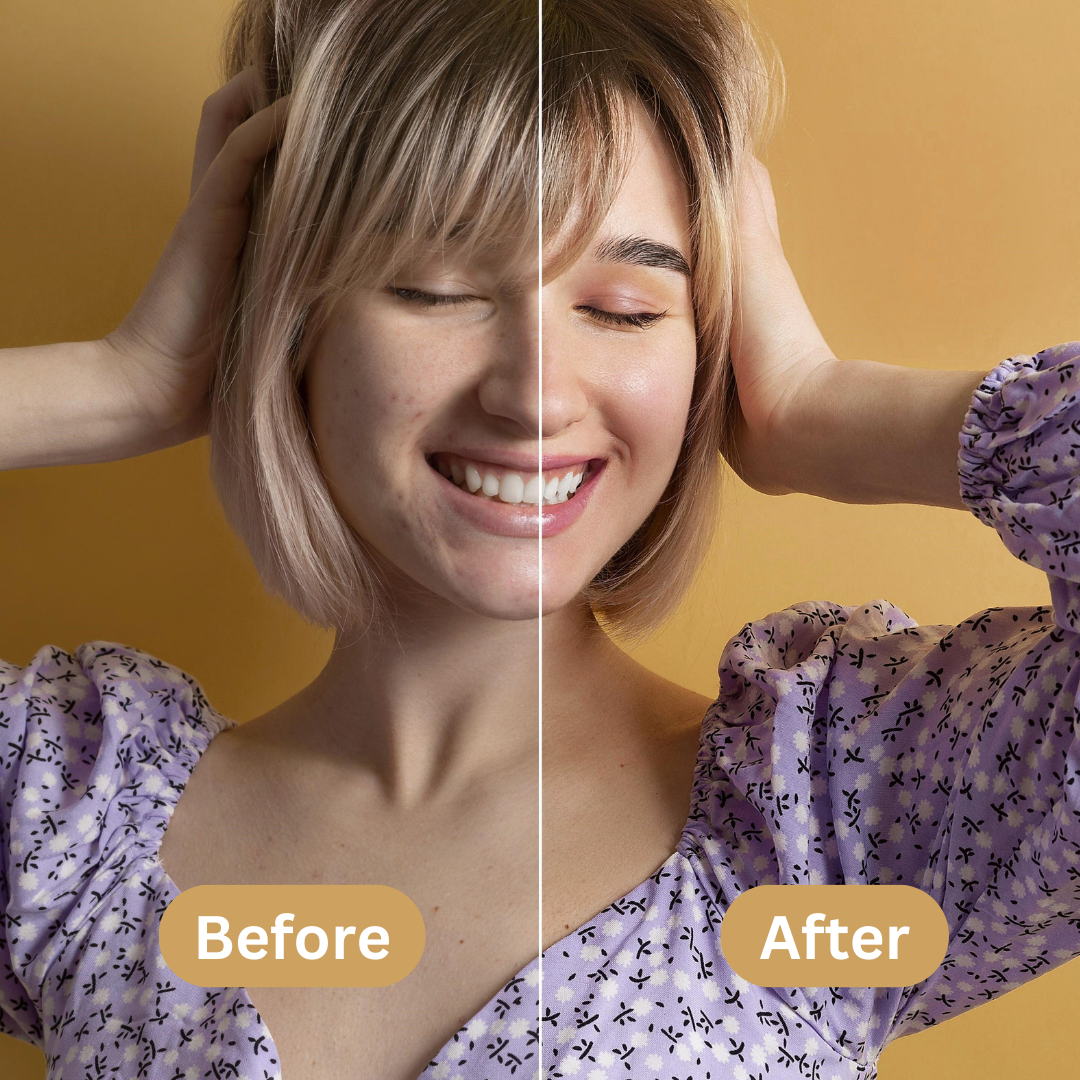Birth Control for Acne Treatment: Types, Benefits, How it Works


Recent developments have brought forth an intriguing method of treating acne: birth control pills. Clinical trials conducted in the UK have shown promising results, and birth control pills have been approved for treating acne in women by the National Health Service. However, this novel approach warrants a thorough exploration.
Scientific studies have revealed the intricate relationship between acne and hormones. Specifically, the hormones known as androgens have been closely associated with the onset of acne.
Androgens, the hormones implicated in acne development, cause the skin's oil glands to enlarge and produce more sebum. An excess of sebum can clog pores, resulting in acne. Hormonal fluctuations, commonly occurring during puberty, can thus lead to increased sebum production and acne.
Imbalances in hormones, notably in women, can cause acne. Conditions such as Polycystic Ovary Syndrome (PCOS) often lead to an excess of androgens, thus triggering acne. Stress also plays a significant role as it can stimulate the production of cortisol, another hormone linked to acne.

Understanding the role of hormones in acne development lends insight into how birth control can serve as a potential treatment. Birth control pills influence the body's hormone production, offering a unique method of managing acne.
Hormonal birth control works by regulating the menstrual cycle and hormone levels, thus reducing androgen production. This decreases sebum production, helping to manage acne. "It's an approach that tackles the root cause of the problem" as explain by Professor John Studd.
The estrogen and progestin in birth control pills can lower the levels of androgens in the body, reducing sebum production. Lower sebum levels mean less oily skin and fewer blocked pores, both of which can reduce the occurrence of acne. The NHS recommends this as a viable treatment for women who have not responded well to topical treatments or antibiotics.
Not all birth control pills are suitable for treating acne. According to the NHS, only those containing both estrogen and progestin have been approved for acne treatment. These include brands such as Yasmin and Ortho Tri-Cyclen. A consultation with a healthcare provider is essential to determine the right choice for each individual case.
There are several forms of birth control used in acne treatment. However, their effectiveness and suitability differ, warranting a comprehensive overview of each type.
The combination pills, such as Yasmin and Ortho Tri-Cyclen, contain both estrogen and progestin. Studies have shown that these pills effectively lower androgen levels, thereby reducing sebum production and acne.
Progestin-only pills, also known as 'mini-pills,' are not typically prescribed for acne. Progestin can actually worsen acne in some cases as it may potentially increase androgen levels, suggests Dr. Elizabeth Tanzi.
Contraceptive patches and vaginal rings work similarly to combination pills. They release estrogen and progestin, helping to regulate hormone levels. However, their use in acne treatment in the UK is less established and requires further research.
Using birth control for acne treatment has multiple benefits, primarily related to hormonal regulation, long-term effectiveness, and additional advantages of birth control use.
As discussed earlier, hormonal regulation is key in managing acne. Combination birth control pills achieve this by reducing the levels of acne-causing androgens in the body.
According to Dr. Doris Day, a dermatologist at Lenox Hill Hospital in New York City, birth control can be a successful long-term treatment for women suffering from acne. Its ability to consistently regulate hormone levels can help maintain clear skin over time.
Beyond treating acne, birth control can offer other benefits such as regulating menstrual cycles, reducing menstrual pain, and providing contraception. It's important to note, however, that these benefits should be balanced with potential side effects.
While birth control can be effective in treating acne, it does come with potential side effects and risks. It is important to consider these before beginning treatment.
Common side effects of birth control include nausea, breast tenderness, weight gain, and mood changes. These side effects typically subside after a few months, advises Dr. Elizabeth K. Hale.
More serious risks, such as blood clots, stroke, and heart attack, though rare, are increased in women who smoke or are over 35. It's essential to discuss these risks with a healthcare provider before beginning treatment.
If side effects occur, they should be discussed with a healthcare provider. They can advise on whether to continue the medication or consider alternatives.
Choosing birth control as an acne treatment involves certain considerations, including the need for medical consultation, the importance of consistent use, and the understanding that birth control is not an immediate cure for acne.
Medical consultation is crucial before starting any birth control regimen for acne treatment. This ensures that the treatment is appropriate for the individual's health status and acne severity. "Patient history, lifestyle, and personal needs should all be considered," advises Dr. Zara Patel, a consultant dermatologist at the Royal Free London NHS Foundation Trust.
Consistent use is key for effectiveness when using birth control for acne treatment. "Missing pills or inconsistent use can lead to hormonal fluctuations, exacerbating acne," warns Dr. Patel. Therefore, a consistent daily routine is crucial for the treatment's success.
It's important to note that birth control is not an immediate solution for acne. Most women see improvement in their acne after three months of use, but for some, it may take up to six months. Patience and consistency are key in this treatment approach.
This article has provided an in-depth exploration of birth control as a treatment for acne. From the mechanisms of hormonal regulation to the potential benefits and side effects, it's clear that while birth control can be a potent tool against acne, it also necessitates careful consideration and medical supervision.
Ultimately, the importance of individualized treatment for acne cannot be overstressed. Everyone's skin and body are unique, and what works for one person may not work for another. Therefore, it is crucial to consult with a healthcare provider when considering birth control for acne treatment.
The effectiveness of birth control for acne treatment is indeed compelling, with evidence-based science to back its usage. However, its implementation is not without potential pitfalls. A thorough understanding of the various types of birth control methods, their benefits and risks, and additional considerations necessary for their use is critical for making an informed decision.
By understanding the intricate relationship between hormones and acne, women can harness the power of birth control to potentially alleviate their acne symptoms. The role of healthcare providers in this process is equally paramount, as their expertise and guidance can help navigate the complexities of hormonal acne treatment.
Finally, it is important to remember that managing acne is often a journey rather than a destination. While birth control can be an effective part of the treatment regimen, it is not a magical quick fix. Patience, consistency, and adherence to professional medical advice are the pillars of success when using birth control for acne treatment. To every woman considering this path, remember: your journey is unique, and the perfect acne solution for you is out there.
In summary, while this article provides a thorough examination of birth control as a treatment for acne, always seek the advice of a healthcare provider for personalized medical advice. It is my hope that this article empowers you with knowledge and encourages thoughtful dialogue with your healthcare provider about your acne treatment options.









